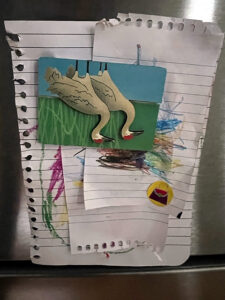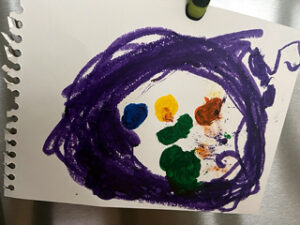Tanks, Half Destroyed In A Field
And now?
I account for myself clearly.
The project that I put in writing, this book was a frightful challenge.
Could I have succeeded? Really?
It is apparently a failure; this book resembles tanks abandoned in their essence
and through combat, half destroyed in a field.
It is immobile, mute, vain testimony to impotent efforts. In advance it had
no other outlet than ruin.
In this regard, I will repeat what Macbeth said of life: a tale told by an idiot,
full of sound and fury, signifying nothing.
–excerpt On Nietzsche, Notes by Georges Bataille, p. 295
 Several days ago, Tuesday evening I was present for a discussion on the topic of Surrealism. The movement was a response by artists in the aftermath of WWI. The war fought on the fields of France and Germany was a nightmarish grind of trench warfare. Warfare was qualitatively different, something never before seen. The machine gun, aircraft, massive artillery manufactured to destroy trenches, and mustard gas: a factory of death.
Several days ago, Tuesday evening I was present for a discussion on the topic of Surrealism. The movement was a response by artists in the aftermath of WWI. The war fought on the fields of France and Germany was a nightmarish grind of trench warfare. Warfare was qualitatively different, something never before seen. The machine gun, aircraft, massive artillery manufactured to destroy trenches, and mustard gas: a factory of death.
Artists responded to this affair of slaughter by the only question that seemed to ultimately matter. What is real, that is, what is foundational, affording us a stable place to stand?
Dadism is another term associated with Surreal art. The Dada movement consisted of artists who rejected the logic, reason, and aestheticism of modern capitalist society, instead expressing nonsense, irrationality, and anti-bourgeois protest in their works. — wikipedia
 I have almost completed reading On Nietzsche by Georges Bataille. The author considers what he has written, the effect of the writing project upon himself personally. The writer’s personal assessment mirrors his Nietzschean evaluation of the human enterprise, what is meant by “civilization.” I like these lines very much. They are a sober weighing of-the-heart of our efforts and of our future prospects on this planet. I cannot characterize Bataille’s summation as optimistic or as pessimistic. Either would be too superficial.
I have almost completed reading On Nietzsche by Georges Bataille. The author considers what he has written, the effect of the writing project upon himself personally. The writer’s personal assessment mirrors his Nietzschean evaluation of the human enterprise, what is meant by “civilization.” I like these lines very much. They are a sober weighing of-the-heart of our efforts and of our future prospects on this planet. I cannot characterize Bataille’s summation as optimistic or as pessimistic. Either would be too superficial.
I imagine myself as the early adolescent child that I once was. The child climbs through the broken barbed wire fence. Hiking across the old pasture, ground taken over by broom straw, the child sees several rusted hulks of old tanks, their guns twisted, bent askew by the cataclysm of their deaths. The child is alone.
There are many ways to ask this question. Could this not be the final question? Only this is worth asking. Why must I be a teenager in love?